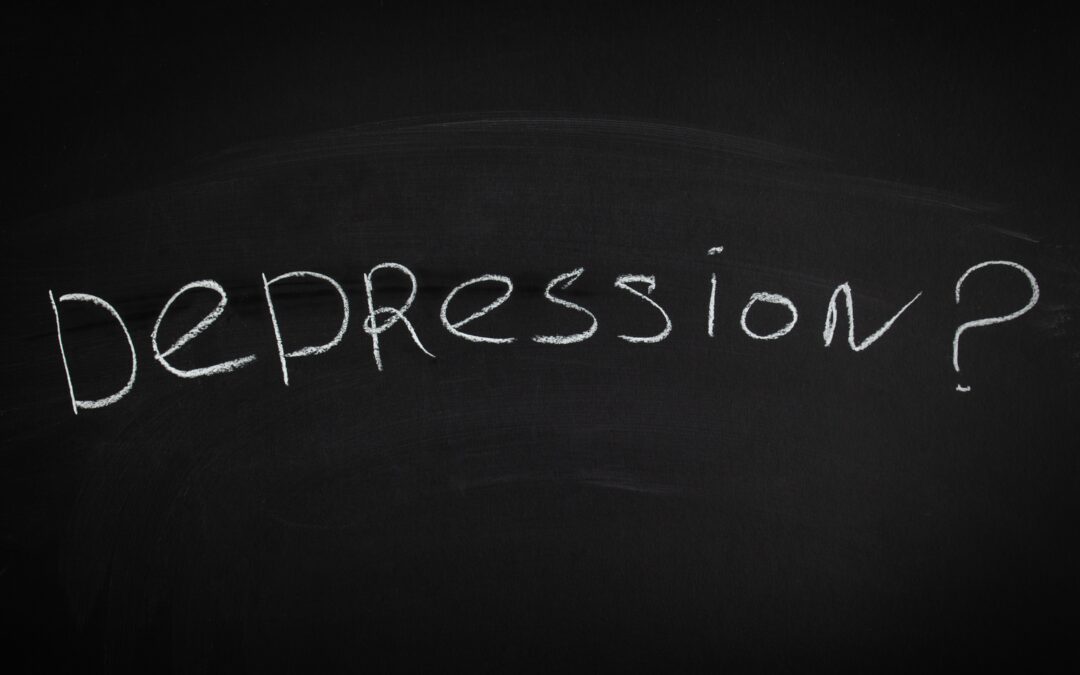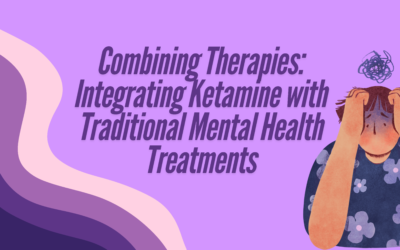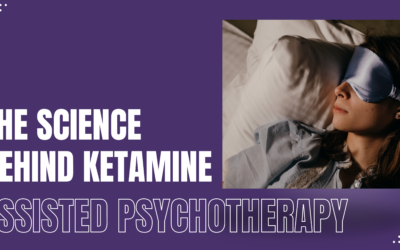How Ketamine Therapy Helps Break Through Depression Relapse
Depression, particularly treatment-resistant depression (TRD), is a condition that affects millions of people worldwide. It’s a complex and multifaceted disorder that often proves difficult to treat, even with traditional therapies such as antidepressants and psychotherapy. For many, depression is not a one-time battle but a recurring challenge that can deeply disrupt daily life. For these individuals, the possibility of relapse is a constant concern. However, ketamine therapy is emerging as a groundbreaking solution, showing remarkable potential in helping people break through depressive relapses—especially for those who have not responded well to conventional treatments.
Understanding Depression Relapse and Treatment-Resistant Depression
Before delving into how ketamine therapy can prevent depressive relapses, it’s essential to understand the two key concepts in this discussion: depression relapse and treatment-resistant depression (TRD).
A depression relapse occurs when symptoms of depression return after a person has experienced a period of improvement or remission. This is different from a recurrence, which is when depression symptoms return after a longer period of wellness. Relapses are common, especially in people with chronic depression, and can be triggered by various factors, including stress, illness, or even a discontinuation of treatment.
Treatment-resistant depression is diagnosed when a person does not respond to at least two different forms of conventional antidepressant therapy. This can include medications like selective serotonin reuptake inhibitors (SSRIs), serotonin and norepinephrine reuptake inhibitors (SNRIs), and therapy such as cognitive behavioral therapy (CBT). For individuals with TRD, the struggle to find a treatment that works can feel like an endless cycle of trial and error, making them particularly vulnerable to depressive relapses.
How Ketamine Therapy Works
Ketamine, once primarily known as an anesthetic, has gained attention in recent years for its rapid and effective antidepressant properties. Unlike traditional antidepressants, which often take weeks or even months to show results, ketamine has the potential to alleviate depressive symptoms within hours. This rapid response is one of the reasons ketamine is becoming a popular option for individuals with TRD.
Ketamine works by targeting the brain’s glutamate system. Traditional antidepressants like SSRIs focus on serotonin, but ketamine’s action is centered on a different neurotransmitter. Glutamate plays a critical role in synaptic plasticity—the brain’s ability to adapt and reorganize itself. In individuals with depression, synaptic plasticity is often impaired, contributing to the persistence of depressive symptoms.
Ketamine stimulates the production of brain-derived neurotrophic factor (BDNF), a protein that promotes the growth of new neural connections. By enhancing synaptic plasticity, ketamine helps the brain “rewire” itself, potentially breaking the cycle of depression. This neuroplasticity is believed to be a critical factor in preventing depressive relapses.
Why Traditional Antidepressants Fall Short
One of the biggest challenges in treating depression is the delayed onset of traditional antidepressants. SSRIs and SNRIs typically take several weeks to build up enough serotonin in the brain to improve mood, and even then, they may not be effective for everyone. In the case of treatment-resistant depression, these medications fail to alleviate symptoms, leading to continued struggles and the risk of relapse.
Furthermore, conventional antidepressants focus primarily on mood regulation but may not address the underlying issues of synaptic plasticity or neural connectivity that contribute to depression. Even when these medications are effective, patients may still experience a relapse after discontinuation or during periods of high stress. Ketamine’s ability to work quickly and directly on brain circuits offers a unique advantage, particularly for those who have not seen improvements with other treatments.
Preventing Depression Relapse with Ketamine Therapy
One of the most promising aspects of ketamine therapy is its ability to reduce the risk of depressive relapse. Several mechanisms explain how ketamine achieves this:
1. Rapid Symptom Relief
Depressive relapses can often be precipitated by a period of acute stress or a sudden resurgence of symptoms. The rapid action of ketamine can provide immediate relief, stopping depressive symptoms from spiraling out of control. This is crucial for individuals prone to relapse, as catching depression early is key to preventing a full-blown episode.
By providing quick symptom relief, ketamine allows individuals to stabilize their mood, giving them the time and space needed to seek additional therapies or lifestyle changes that can help sustain recovery in the long term.
2. Neuroplasticity and Brain Healing
As mentioned earlier, ketamine promotes neuroplasticity by increasing glutamate levels and stimulating the production of BDNF. This enhances the brain’s ability to form new synaptic connections, which can help repair damage caused by chronic depression. Strengthening these neural circuits can lead to more resilient brain function, making it less likely for a person to fall back into old depressive patterns.
Research suggests that the more robust the synaptic connections, the more resilient the brain becomes to stress, which is a common trigger for depressive relapse. Ketamine helps rebuild the brain’s resilience, reducing the likelihood of relapse in the future.
3. Sustained Effects with Maintenance Therapy
Ketamine therapy is often delivered in a series of treatments over several weeks, followed by maintenance sessions as needed. This structured approach ensures that the brain continues to benefit from ketamine’s antidepressant effects, even after the initial treatment phase is complete.
For individuals with TRD, long-term maintenance therapy can help keep depressive symptoms at bay, reducing the risk of relapse. The key advantage here is that patients can achieve sustained improvement without relying on daily medication, which is a common requirement with traditional antidepressants.
4. Ketamine as an Adjunct to Other Treatments
Another strength of ketamine therapy is that it can be used in conjunction with other treatments, such as antidepressants or psychotherapy. For individuals who may have responded partially to antidepressants but still experience relapse, ketamine can provide a significant boost in mood stability. By integrating ketamine with other therapies, patients can build a more comprehensive treatment plan that tackles depression from multiple angles.
Additionally, ketamine’s rapid mood stabilization can help individuals engage more effectively in psychotherapy, which can be a vital component in preventing relapse. When a person’s mood is stabilized, they are better able to engage with therapeutic techniques like cognitive-behavioral therapy (CBT), which further reduces the chances of relapse.
The Future of Depression Treatment
Ketamine’s impact on preventing depressive relapse is still a relatively new area of study, but the results so far are promising. As research continues to expand, the potential of ketamine therapy as a long-term solution for TRD becomes more apparent. It offers a new hope for those who have struggled with conventional treatments and are looking for a way to break free from the cycle of depression and relapse.
Moreover, ketamine therapy is opening the door to new research into other fast-acting antidepressants that target the brain’s glutamate system. These developments could revolutionize how we treat depression and prevent relapse, offering new options to individuals who need them most.
Conclusion
For people with treatment-resistant depression, the risk of relapse is an ever-present concern. Traditional treatments often fail to provide lasting relief, leaving individuals vulnerable to recurring bouts of depression. Ketamine therapy, however, offers a different approach—one that works quickly, promotes neuroplasticity, and helps prevent relapse by stabilizing mood and enhancing brain resilience.
By addressing the root causes of depression and offering immediate symptom relief, ketamine therapy is breaking new ground in mental health treatment. For those who have struggled to find lasting relief through conventional methods, ketamine offers a way to not only break through depressive episodes but also prevent them from returning.
In the world of depression treatment, ketamine therapy stands as a beacon of hope, offering a path to long-term recovery for those who need it most.
Combining Therapies: Integrating Ketamine with Traditional Mental Health Treatments
In recent years, the mental health field has seen an exciting evolution in treatment methodologies, with innovative options emerging to complement traditional therapies. Among these advancements is ketamine therapy, which has gained attention for its rapid effects on...
The Science Behind Ketamine-Assisted Psychotherapy
In recent years, ketamine has gained attention as a groundbreaking treatment for various mental health conditions. While traditionally known as an anesthetic, its potential in psychotherapy has sparked interest and research. This blog will delve into the science...
Navigating Nutritional and Lifestyle Considerations for Ketamine Patients
Ketamine therapy can be a transformative experience for those struggling with mental health challenges. However, incorporating nutritional and lifestyle considerations into your treatment plan can further enhance its benefits. By focusing on balanced nutrition,...




